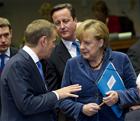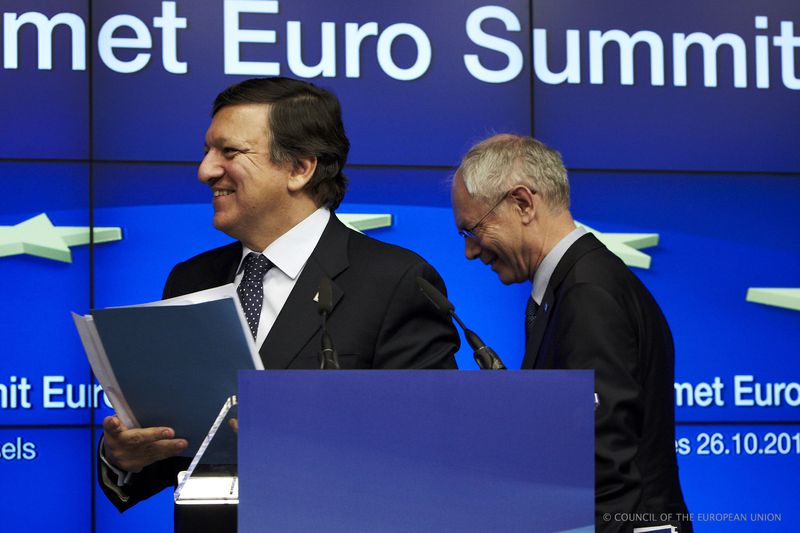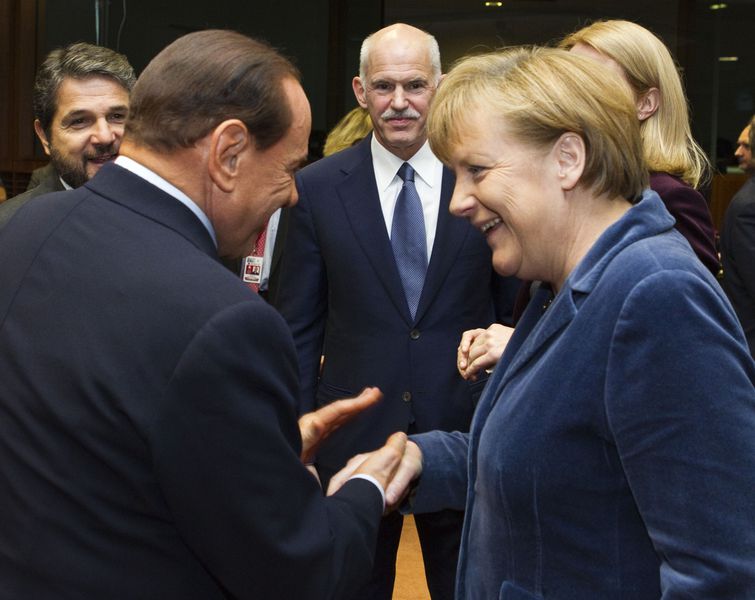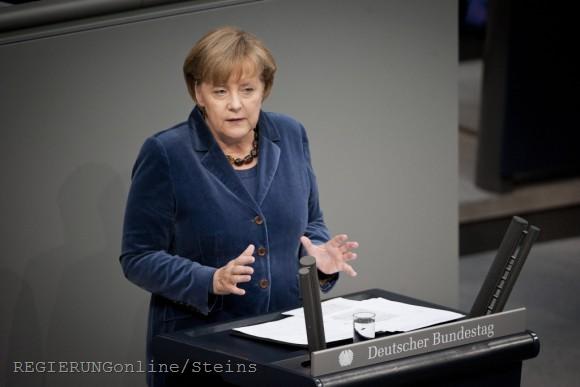Poland Defended the Unity of the EU
Adelina Marini, October 27, 2011
 When it became clear that during the Sunday European Council and eurozone summit the so longed comprehensive solution to end the euro area crisis would not be reached, momentarily a new summit was called, but only for the eurozone countries. In the tense hours during which the 27 leaders argued, at their official lunch, it became clear that Britain and Poland insisted the new summit, planned for Wednesday (October 26), to be attended by the heads of state or government of the non-euro countries too. British PM David Cameron from the very beginning of his term insists to play an active role in the debates on the search of an exit from the crisis, although his party of conservatives is strongly against further European integration.
When it became clear that during the Sunday European Council and eurozone summit the so longed comprehensive solution to end the euro area crisis would not be reached, momentarily a new summit was called, but only for the eurozone countries. In the tense hours during which the 27 leaders argued, at their official lunch, it became clear that Britain and Poland insisted the new summit, planned for Wednesday (October 26), to be attended by the heads of state or government of the non-euro countries too. British PM David Cameron from the very beginning of his term insists to play an active role in the debates on the search of an exit from the crisis, although his party of conservatives is strongly against further European integration.
Cameron's objective, however, is to protect the stability of the British economy, which under his rule went through some serious shocks, aimed at reducing significantly the gap in the budget by at the same time avoid killing economic growth. Cameron's coalition government (with Nick Clegg's Lib-Dems) undertook a broad bank reform, while in the same time the statistics reported slight growth which, though, is insufficient to allow the government and the businesses to sigh in relief. This is why the British prime minister is so blunt in his approach to his EU colleagues.  His finance minister George Osborne even gave the eurozone a deadline to live - alas, this deadline has expired.
His finance minister George Osborne even gave the eurozone a deadline to live - alas, this deadline has expired.
We have no information whether Britain's and Poland's actions were coordinated, but Poland's motives are a little bit different, in spite the common things: both countries managed to avoid the crisis and were islands of stability; both countries are not members of the eurozone; both countries have strong and ambitious prime ministers; both countries have half of their trade with the eurozone. But with this the similarities are over. For Poland, among other things, it is very important the unity of the European Union to be protected.
Poland is one of the new EU member states. It joined together with 9 former Soviet satellites in 2004 but since the fall of the Berlin wall the country went along a long and successful way of full transformation and turned its back to the past, while drawing the right lessons. Now is not the right time the country to lose all this, is the Poles' feeling, who resisted to join the eurozone because they feared that the strict criteria (most of all inflation and deficit) would hamper the so needed growth for economic convergence.
Currently Poland is holding the rotatory EU Presidency. This is the fourth of the new member states to take the not that heavy anymore European position (after the entry into force of the Lisbon Treaty). For the first half of its 6-month presidency, however, Poland proved that the position of a temporary EU presidency could be very meaningful in a moment when it could be said "these have to be decisions of the eurozone". These words belong to French President Nicolas Sarkozy, uttered during the joint (precedent) news conference on Sunday with German Chancellor Angela Merkel. Both leaders announced then that a consent had been reached the summit on Wednesday (yesterday) to be preceded by a meeting with the 10 non-euro countries, but Mr Sarkozy underlined that the decisions had to be taken by the countries sharing a common currency.
 Last night there was another precedent. In the pause between the meetings of the EU27 and the 17 eurozone countries a news conference was given by Donald Tusk. Usually, these news conferences are given by Commission President Jose Manuel Barroso and European Council President Herman Van Rompuy. Last night, though, they did not take part. Polish PM Tusk started with the words that cooperation in the Eurogroup (the eurozone finance ministers meetings) could not be opposed to the unity of the EU as a whole. He added that there was a consent Eurogroup work to be joined by those EU member states who have ambitions to join the eurozone or would soon become members. This is a great success for Poland who, from the very first ideas of a eurozone government, was struggling to avoid a division of Europe into two camps, as Donald Tusk himself recalled last night.
Last night there was another precedent. In the pause between the meetings of the EU27 and the 17 eurozone countries a news conference was given by Donald Tusk. Usually, these news conferences are given by Commission President Jose Manuel Barroso and European Council President Herman Van Rompuy. Last night, though, they did not take part. Polish PM Tusk started with the words that cooperation in the Eurogroup (the eurozone finance ministers meetings) could not be opposed to the unity of the EU as a whole. He added that there was a consent Eurogroup work to be joined by those EU member states who have ambitions to join the eurozone or would soon become members. This is a great success for Poland who, from the very first ideas of a eurozone government, was struggling to avoid a division of Europe into two camps, as Donald Tusk himself recalled last night.
He left no doubt about Warsaw's European ambitions. A Polish journalist asked Donald Tusk whether since Herman Van Rompuy would lead the European Council and eurozone summits this position could be taken by a person from a non-euro country, for example Poland or Britain, he said: "I don't know what David Cameron's plans are but Poland will soon be in the eurozone, so this would not be a big issue for us".
 | © The Council of the European Union
| © The Council of the European Union | © The Council of the European Union
| © The Council of the European Union | © REGIERUNGonline/Steins
| © REGIERUNGonline/Steins Klaus Regling | © Council of the EU
Klaus Regling | © Council of the EU Mario Centeno | © Council of the EU
Mario Centeno | © Council of the EU Mario Centeno | © Council of the EU
Mario Centeno | © Council of the EU